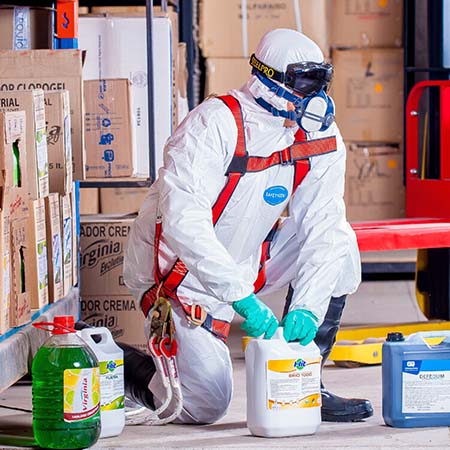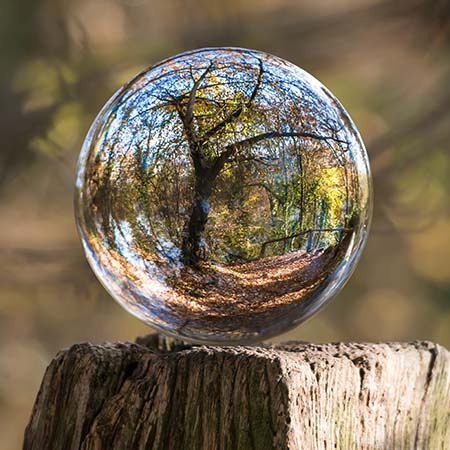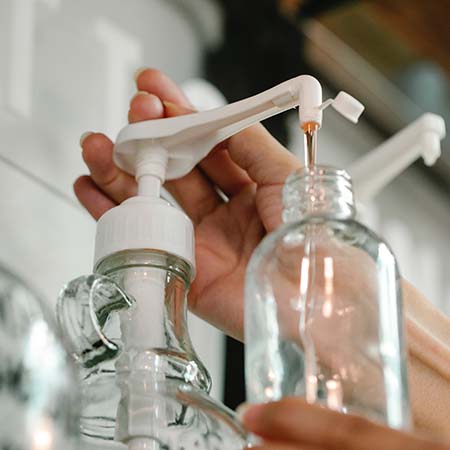Cleaning services – Using bleach to clean certain surfaces and materials can damage it. Typically wool and silk fabrics, upholstery, painted surfaces and natural woods should not be cleaned by bleach. Keep reading to learn more.
You stand in the middle of your kitchen, looking around, trying to decide what needs cleaning. You know that you can use bleach for many different tasks around the house, but you’re wondering if it’s safe. You remember that some items should never be cleaned with bleach, but which ones? You decide to do a little research before you dive in.
As a parent, it’s important to be aware of what not to clean with bleach to keep your home safe and damage-free. From wool and silk fabrics to upholstery, painted surfaces, and electronics, many items should never come into contact with bleach.
However, when used properly, bleach can be an effective cleaning solution for many areas around the house. In this article, we’ll discuss why it is important to know what not to clean with bleach. At the same time learn how you can safely use it for various tasks without damaging any items or putting your family at risk.

This is considered to be an overkill protection against bleach
What are bleach and its potential dangers?
When it comes to cleaning the home, bleach can be an effective option for tackling tough stain-causing germs and odours. Unfortunately, while it might seem like a simple solution, bleach can carry some risks if not handled properly. Some may likely to experience burning sensations on their skin or in their eyes upon contact in high concentrations. While overexposure can also lead to shortness of breath and sore throats.
Additionally, mixing bleach with other common household cleaners such as ammonia and vinegar can create a toxic gas that can make it difficult or even hazardous to breathe your home’s air.
For these reasons, users should take proper safety precautions when using bleach, such as wearing gloves and goggles, working in well-ventilated areas, and keeping children away from work areas.
What not to clean with bleach
Cleaning products have a lot of power, but bleach is not the solution for every dirt and stain around the house. While extremely effective in removing mould and mildew from tile and other surfaces, it can be too harsh for fabrics, upholstery and natural woods. Please note that it’s never a good idea to mix bleach with any other cleaning product as the combination can cause toxic fumes.
Bleach is not recommended when cleaning wooden or painted kitchen countertops, leather couches, stone fireplaces or some quartz countertops. A better option might be a gentler all-purpose cleaner used on cloth or fabric surfaces, or specialized cleansers made especially for specific products like counters or upholstery. Careful planning will ensure your home stays clean without causing unnecessary damage.
How to safely use bleach for cleaning without damaging your home
To do this, it is essential to dilute the bleach in water before use, and always check for any instructions specific to the type of surface you’re cleaning. Try not to use undiluted bleach on surfaces such as plastic or marble, as it could cause discolouration or dullness that may become difficult to undo.
Consider wearing rubber gloves when using bleach for extra protection. As an added measure of safety, work in a well-ventilated area so that fumes are not inhaled accidentally. If you follow these precautions carefully and use them sparingly, bleach can be an asset in keeping your home sparkling clean!

There are many alternative to bleach, such as cleaning vinegar
Alternative to bleach
Cleaning doesn’t have to be a bleach-filled affair. There are plenty of safe alternatives that work just as well. For example, an effective mix for hard surfaces and non-porous materials is two teaspoons of borax dissolved in one quart of hot water. This can be used to mop floors or scrub down counters.
As another option, using a microfiber towel with warm water can be great for removing dust and dirt from delicate items like electronics, or to get pet fur off of furniture without damaging the surface.
Vinegar and baking soda – probably the most eco-friendly choice out there. It is also an excellent choice for cleaning stovetops, washing windows and more. With such a variety of cleaning agents available, it’s never been easier to keep your home sparkling clean in a safe manner!
Check out your local Canadian Tire store for cleaning vinegar and baking soda. Note we are not affiliated with their website whatsoever.
Conclusion
Using bleach to clean around the home can be dangerous if not used properly. It’s important to research and understand which surfaces or fabrics are compatible with chlorine-based products. If you’re ever in doubt, opt for a gentler cleanser or natural options such as vinegar and baking soda. You may also test the bleach mixture in a small area before committing. With careful planning and consideration, you can ensure your home remains clean and safe.
If you enjoyed this blurb, try reading our other articles such as: “Why does cleaning make you happier?” and “Can you use baking soda for cleaning?” – Cleaning services.
Frequently Asked Questions
What are some tips for using bleach when cleaning your home?
- Always dilute the bleach in water before use, and check for any instructions specific to the type of surface you’re cleaning.
- Consider wearing rubber gloves when using bleach for extra protection.
- Work in a well-ventilated area so that fumes are not inhaled accidentally.
- What alternative cleaning products can be vinegar and baking soda.
How do you dilute bleach for cleaning?
It is recommended to dilute bleach with water at a ratio of 1 part bleach to 10 parts water. This diluted solution can then be used for most cleaning surfaces. Wood, and painted surfaces should be avoided. Make sure to read any instructions specific to the type of material you are cleaning, as some may require a higher or lower concentration of bleach.

Cleaning services: bleach needs to be stored in a dry cool place away from children
How do you store bleach safely?
Bleach should always be stored in a cool, dry place away from children and pets. It is also important to make sure it is kept in the original container with the lid tightly closed. Again, never mix bleach with other cleaning products as this can result in dangerous fumes.
What should you do if you accidentally get bleach on your skin or clothing?
If you have gotten bleach on your skin, rinse it off immediately with cold water and apply a mild soap.
If you have spilt bleach on clothing, pre-treat the area as soon as possible with a mixture of equal parts dish soap and water. Next, soak the garment in cool water for up to 30 minutes and then launder as usual. There may be discolouration in your clothing later on.
What should you do if you accidentally ingest bleach?
If you or someone else accidentally ingests bleach, call your local poison control centre immediately. Do not attempt to induce vomiting as this could make the situation worse. Never hesitate to contact a medical professional for assistance!
What are some common myths about bleach?
One common myth is that bleach can be used to kill mould, however, this is not true. Bleach may temporarily disinfect the area but it will not get rid of the mould spores and growth.
Another myth is that mixing bleach with ammonia or other cleaning products creates a powerful cleaner. In reality, the combination of these substances produces dangerous toxic fumes.
Finally, it is a myth that bleach can be used to bleach clothes. Chlorine bleach should never be used on coloured fabrics as it can cause discolouration and fading.
Cleaning services
The Cleaning Tribe is dedicated to helping families keep their homes safe and clean. We provide a wide range of eco-friendly cleaning products upon request. These are designed to be both effective and non-toxic. We use cleansers, polishes, and stain removers that are perfect for tackling even the toughest grime without the use of harsh chemicals.
Visit our website or call our live 24/7 line at 416-292-0032 and explore our services today – Cleaning services.
